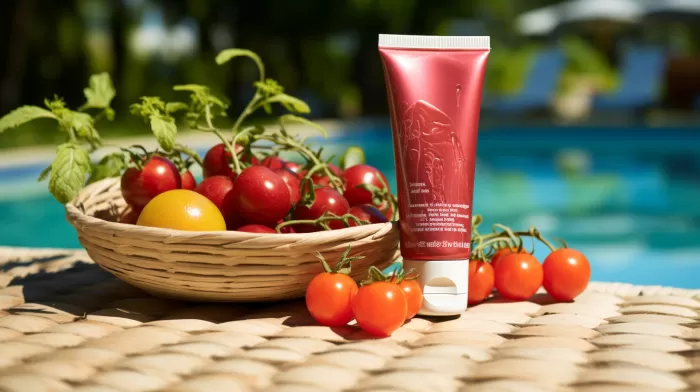You may not realize it, but the truth about commercial sunscreens is out and the facts aren’t very sunny. Many chemicals found in most of today’s sun skincare products such as sunblocks, tanning lotions, and after-sun care are not as healthy and protective as once believed. In fact, chemicals like oxybenzone may actually contribute to increased incidences of skin cancer and other cancers by fueling inflammation, causing oxidation, damaging DNA, and disrupting hormones while promoting other detrimental effects.
Natural Alternatives
Natural sunscreen alternatives that use botanical-based moisturizers and traditional sun-blocking agents like zinc oxide may provide moderate protection without the risk of harmful toxins crossing directly into the body from the skin. We all need a moderate amount of sun exposure to create vitamin D, but it’s just as important to avoid spending hours in the sun during peak times (between 10 a.m. and 4 p.m.) when rays are strongest.
The Best Medicine: Nutrient-dense Foods
July is UV Safety Month and a good time of year to talk about alternative ways to stay safe in the sun. Eating an abundance of nutrient-dense whole foods with an emphasis on anti-inflammatory, antioxidant-rich fruits and vegetables, sprouted grains and legumes, healthy fats, and lean protein can help your skin respond better to the assaults on cellular and DNA function caused by prolonged sun exposure.
It’s equally important to avoid the typical Western diet full of inflammatory foods like factory-farmed animal products, processed ingredients, pesticides, refined carbohydrates, gluten, sugar, high fructose corn syrup, table salt and trans fats. These can wreak havoc throughout the body, disrupt critical cellular signals, damage DNA, impair immunity, disrupt repair functions, and fuel chronic inflammation. This in turn weakens the skin’s defenses against the damage caused by prolonged UV ray exposure.
By emphasizing an anti-inflammatory diet with an abundance of polyphenol-rich, brightly colored fruits and vegetables, including items like berries, pomegranates, leafy greens, tomatoes, squash, melons, sweet potatoes, yams, and cruciferous vegetables (broccoli and cabbage), you can increase the skin’s ability to protect against environmental assaults.
Airborne Pollutants and Pesticides
During the hot summer months, the damage can be much more pronounced. Airborne pollutants accumulate in the summer, and it’s a time of year when crops are sprayed most heavily with pesticides. A comprehensive anti-inflammatory program goes a long way in protecting the skin from assaults like environmental toxins, sunburns, and sun damage, all of which drive the formation of wrinkles, dark spots, and sagging, thinning skin — in addition to skin cancer.
Supplements and Botanicals
Taking botanical and food-based antioxidant supplements can also help protect your skin from sun damage. A number of these have been shown to increase your skin’s resistance to UV damage. Examples include lycopene, a pigment abundant in tomatoes, and resveratrol, the anti-aging compound found in red wine and grape skins. Vitamins D and E are other important supplements that increase the skin’s ability to resist sun damage.
Another excellent supplement is purified Honokiol, a powerful compound derived from magnolia bark, an ancient staple of Traditional Chinese medicine. Honokiol shows free radical scavenging abilities that are 1,000 times more powerful than vitamin E. It’s also a potent cancer fighter and anti-inflammatory agent that has been shown to help protect against skin cancer.
One interesting supplement that has been receiving attention recently is an extract from a fern plant called Polypodium leucotomos. High in antioxidants, this extract is shown in studies to significantly protect against sunburn and UV skin damage. Omega-3 fatty acids can also help protect the skin against sun damage.
Modified citrus pectin (MCP) has been the subject of numerous studies, showing it has effects against the inflammatory protein galectin-3. Galectin-3 fuels chronic inflammation, fibrosis (uncontrolled scar tissue buildup), cancer, heart disease, and many other conditions. MCP is the most researched galectin-3 inhibitor.
MCP also safely detoxifies heavy metals and environmental toxins from the circulation. It has been shown to help fight skin cancer and provide important anti-inflammatory support throughout the body. For more information about this unique ingredient, consider reading the new book by Karolyn A. Gazella, New Twist on Health: Modified Citrus Pectin for Cancer, Heart Disease, and More.
For optimal skin protection, bolster your body’s defense mechanisms with nutrients that protect against sun damage. Make sure to stay hydrated with plenty of filtered water and electrolytes, and be smart about limiting excess time in the sun.



